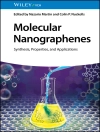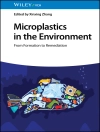Solvents are ubiquitous throughout the chemical industry and are found in many consumer products. As a result, interest in solvents and their environmental impact has been steadily increasing. However, in order to achieve maximum integration of new green solvents into the relevant chemical sectors, clarification of the social, economic, and environmental implications of solvent substitution are needed. This book explores the solvent life cycle, highlighting the challenges faced at various points, from production, through the supply-chain and downstream use to end-of-life treatment. It also discusses the potential benefits that a green chemistry and bio-based economy approach could bring. The current state-of-the-art of green solvents is evaluated along these lines, in addition to reviewing their applications with an appreciation of sustainability criteria. Providing a critical assessment on emerging solvents and featuring case studies and perspectives from different sectors, this is an important reference for academics and industrialists working with solvents, as well as policy-makers involved in bio-based initiatives.
Tabella dei contenuti
Introduction to Solvents and Sustainable Chemistry;
Modern Trends in Solvent Use;
Sustainability Applied to Solvents;
Alternative Solvents;
Green Chemistry Concepts and Metrics for Solvent Selection;
An Appendix of Solvent Data Sheets
Circa l’autore
James Sherwood is a Research Associate at the University of York, UK, where he works at the Green Chemistry Centre of Excellence. In addition to his work on solvent effects in organic synthesis, he is now conducting research on sustainability assessments for bio-based products.












